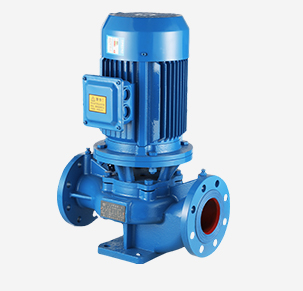English
- Afrikaans
- Albanian
- Amharic
- Arabic
- Armenian
- Azerbaijani
- Basque
- Belarusian
- Bengali
- Bosnian
- Bulgarian
- Catalan
- Cebuano
- Corsican
- Croatian
- Czech
- Danish
- Dutch
- English
- Esperanto
- Estonian
- Finnish
- French
- Frisian
- Galician
- Georgian
- German
- Greek
- Gujarati
- Haitian Creole
- hausa
- hawaiian
- Hebrew
- Hindi
- Miao
- Hungarian
- Icelandic
- igbo
- Indonesian
- irish
- Italian
- Japanese
- Javanese
- Kannada
- kazakh
- Khmer
- Rwandese
- Korean
- Kurdish
- Kyrgyz
- Lao
- Latin
- Latvian
- Lithuanian
- Luxembourgish
- Macedonian
- Malgashi
- Malay
- Malayalam
- Maltese
- Maori
- Marathi
- Mongolian
- Myanmar
- Nepali
- Norwegian
- Norwegian
- Occitan
- Pashto
- Persian
- Polish
- Portuguese
- Punjabi
- Romanian
- Russian
- Samoan
- Scottish Gaelic
- Serbian
- Sesotho
- Shona
- Sindhi
- Sinhala
- Slovak
- Slovenian
- Somali
- Spanish
- Sundanese
- Swahili
- Swedish
- Tagalog
- Tajik
- Tamil
- Tatar
- Telugu
- Thai
- Turkish
- Turkmen
- Ukrainian
- Urdu
- Uighur
- Uzbek
- Vietnamese
- Welsh
- Bantu
- Yiddish
- Yoruba
- Zulu
Telephone: +86 13120555503
Email: frank@cypump.com
Nov . 27, 2024 22:30 Back to list
Efficient Solutions for Handling Abrasive Slurry with High-Performance Pumps
Understanding Abrasive Slurry Pumps Applications and Importance
Abrasive slurry pumps are specialized types of pumps designed for transporting mixtures of solids and liquids with substantial abrasive properties. These pumps are crucial in various industrial applications, where they handle slurries that could damage standard pumping equipment. The unique demands of abrasive materials necessitate advanced design and materials in slurry pump construction, making them vital in sectors such as mining, construction, and wastewater treatment.
How Abrasive Slurry Pumps Work
Abrasive slurry pumps operate on a relatively simple principle they create hydraulic energy to move fluid. Typically, these pumps utilize a centrifugal mechanism, where an impeller spins to generate rotational energy that pushes the slurry through the pump casing. The design of the impeller and casing is critical, as they must withstand the erosive effects of solid particles within the slurry.
These pumps are constructed from durable and wear-resistant materials, such as high-chrome alloys, rubber, or ceramic composites. The choice of materials helps to prolong pump life and maintain performance despite the harsh operating conditions. Furthermore, the design factors such as clearance between the impeller and the casing are also optimized to accommodate the specific characteristics of the slurry being pumped, including particle size and concentration.
Applications of Abrasive Slurry Pumps
1. Mining Industry One of the most significant applications of abrasive slurry pumps is in the mining sector. Here, they are used to transport slurries consisting of water, rock, and ore. The ability to handle large volumes of abrasive material makes these pumps ideal for processes like tailings management, where waste materials are moved to designated storage areas.
2. Construction In the construction industry, abrasive slurry pumps are employed to manage concrete and cement slurries. These pumps facilitate the transfer of these mixtures from batch plants to construction sites or between different zones on the job. Their ability to handle particles found in concrete mixtures ensures efficiency and reliability.
3. Wastewater Treatment Another important application of slurry pumps is in wastewater treatment plants, where they transport sludge that can be extremely abrasive due to the presence of debris and contaminants. Efficient handling of this abrasive material is vital for maintaining the overall functionality of the treatment process.
abrasive slurry pump

4. Dredging Operations Dredging applications require robust pumping solutions to remove sediment and debris from bodies of water. Abrasive slurry pumps are designed to manage high solid content, making them essential in dredging operations for port maintenance and river navigation.
Key Features to Consider
When selecting an abrasive slurry pump, several factors should be taken into account
- Material Compatibility Depending on the nature of the slurry, the pump material must withstand both chemical and abrasive wear. This often requires careful selection of the pump material.
- Pump Design The design must accommodate specific operational conditions like flow rate, pressure requirements, and particle size distribution in the slurry.
- Maintenance and Repair Given their operational environments, ease of maintenance is a critical factor. Pumps that allow easy access for maintenance and repairs can minimize downtime and reduce operational costs.
- Hydraulic Performance Pump efficiency directly impacts overall operational costs. Therefore, evaluating the hydraulic performance curve to ensure that it aligns with the required operational parameters is essential.
Conclusion
Abrasive slurry pumps are indispensable in many industrial processes where traditional pumping solutions fall short. By employing advanced materials and designs tailored for high-abrasion applications, these pumps ensure the efficient transport of slurries while minimizing wear and maintenance challenges. Understanding their operational principles, applications, and key selection criteria can significantly enhance productivity in industries where slurries are commonplace. As technology advances, we can expect further improvements in the efficiency and longevity of abrasive slurry pumps, making them even more vital in modern industrial practices.
-
ISG Series Vertical Pipeline Pump - Chi Yuan Pumps Co., LTD.|Advanced Hydraulic Design&Energy-Efficient Solutions
NewsJul.30,2025
-
ISG Series Vertical Pipeline Pump - Chi Yuan Pumps Co., LTD.
NewsJul.30,2025
-
ISG Series Vertical Pipeline Pump - Chi Yuan Pumps Co., LTD.|energy-efficient fluid handling&industrial durability
NewsJul.30,2025
-
ISG Series Vertical Pipeline Pump - Chi Yuan Pumps | Advanced Engineering&Industrial Efficiency
NewsJul.30,2025
-
ISG Series Pipeline Pump - Chi Yuan Pumps | High Efficiency, Energy Saving
NewsJul.30,2025
-
ISG Series Vertical Pipeline Pump-Chi Yuan Pumps|High Efficiency&Reliable Performance
NewsJul.29,2025










